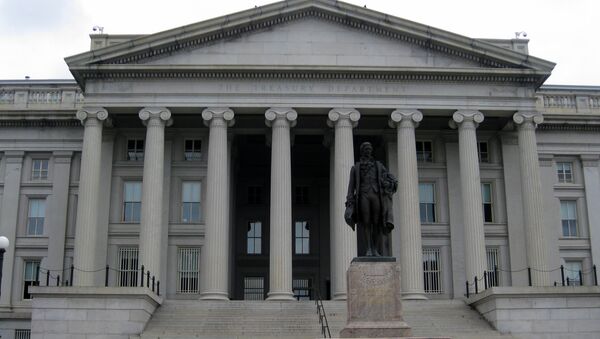WASHINGTON (Sputnik) — The targeted sanctions against Russia may serve as a new, innovative approach to achieve US national security and foreign policy objectives, Office of Foreign Assets Control Director John Smith said.
“I suspect in the future you will see more of the targeted variety [of sanctions] which were developed to be less onerous on the civilian populations than our previous country-wide embargoes,” Smith said in a Thursday address at the Venable LLP law firm in Washington, DC.
Smith explained that the US approach to the recent round of sanctions on Russia is “relatively novel” and was designed to be "mindful of US foreign policy objectives."
US sanctions objectives include "maximizing the cost on Russia" while limiting the spillover effect on the United States’, European and global economies, he said.
In September 2014, the administration of President Barack Obama announced sanctions prohibiting companies and individuals in the United States from providing Russian entities with equity or long-term debt financing.
As a US foreign policy tool, sanctions have become “more popular and effective,” Smith observed, “because they offer that fundamental alternative between words and war.”
Russia has stated that the Western sanctions are counterproductive as well as have a limited impact on its economy.
Moscow signed this week a series of multi-billion dollar trade and economic cooperation agreements with other international partners among the Eurasian Economic Union, the Shanghai Cooperation Organization and the BRICS [Brazil, Russia, India, China and South Africa] group of countries.
The White House has admitted on different occasions that the sanctions against Russia have failed to change Moscow’s policies.
The Office of Foreign Assets Control (OFAC) is a component of the US Department of the Treasury that administers and enforces economic and trade sanctions based on US foreign policy and national security goals. The Office acts under Presidential national emergency powers, as well as authority granted by specific legislation, to impose controls on transactions and freeze assets under US jurisdiction.



